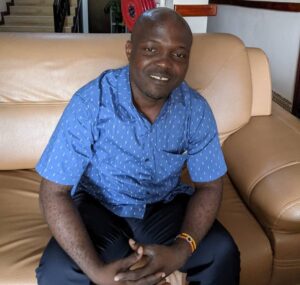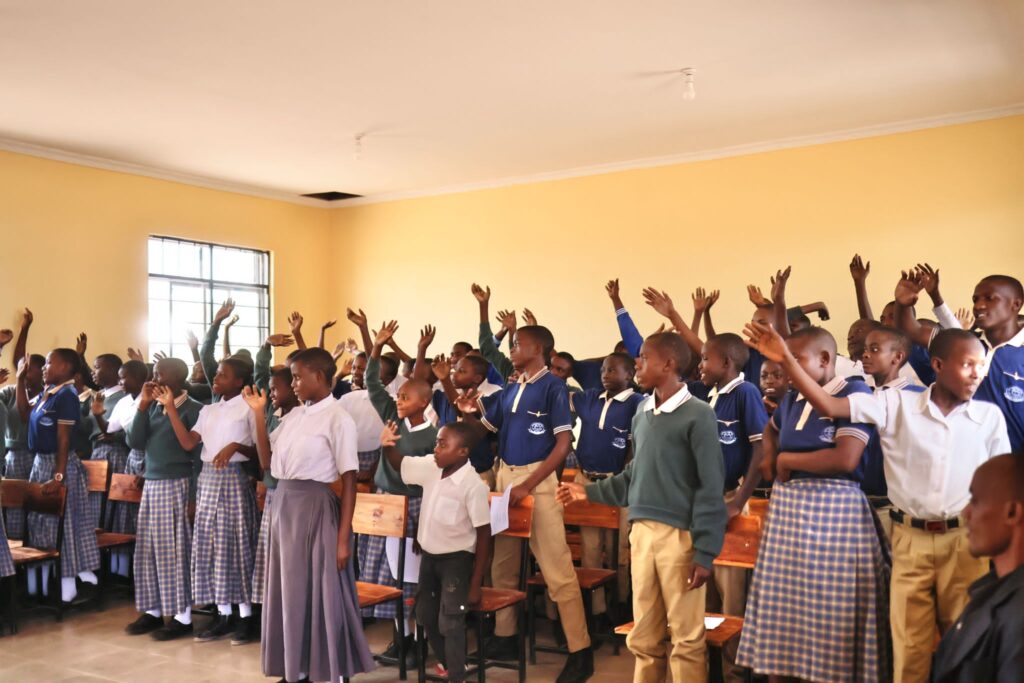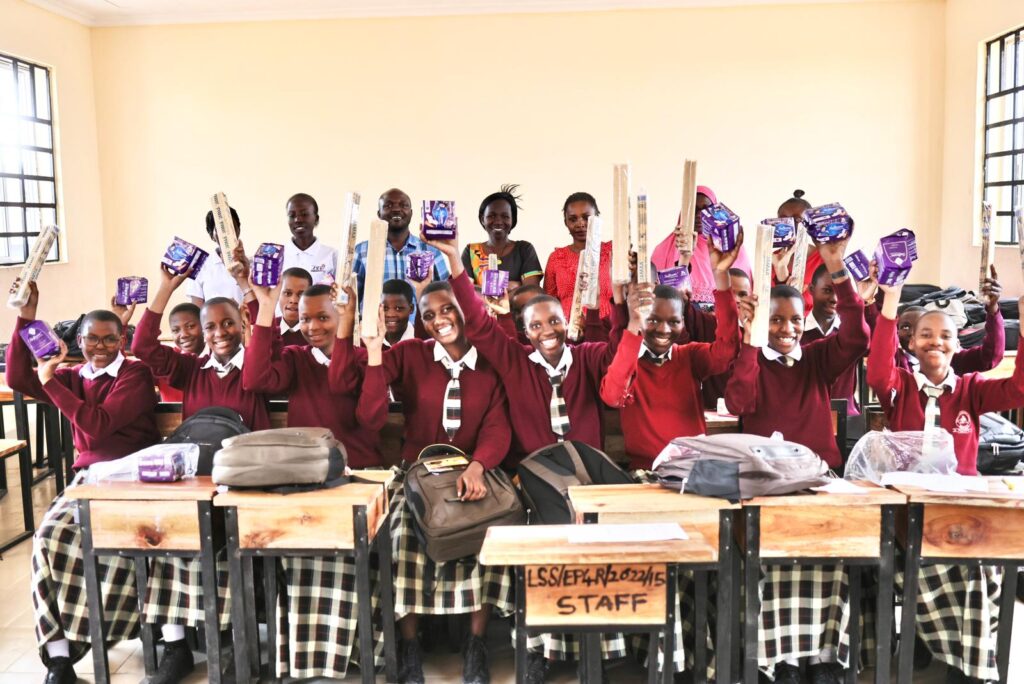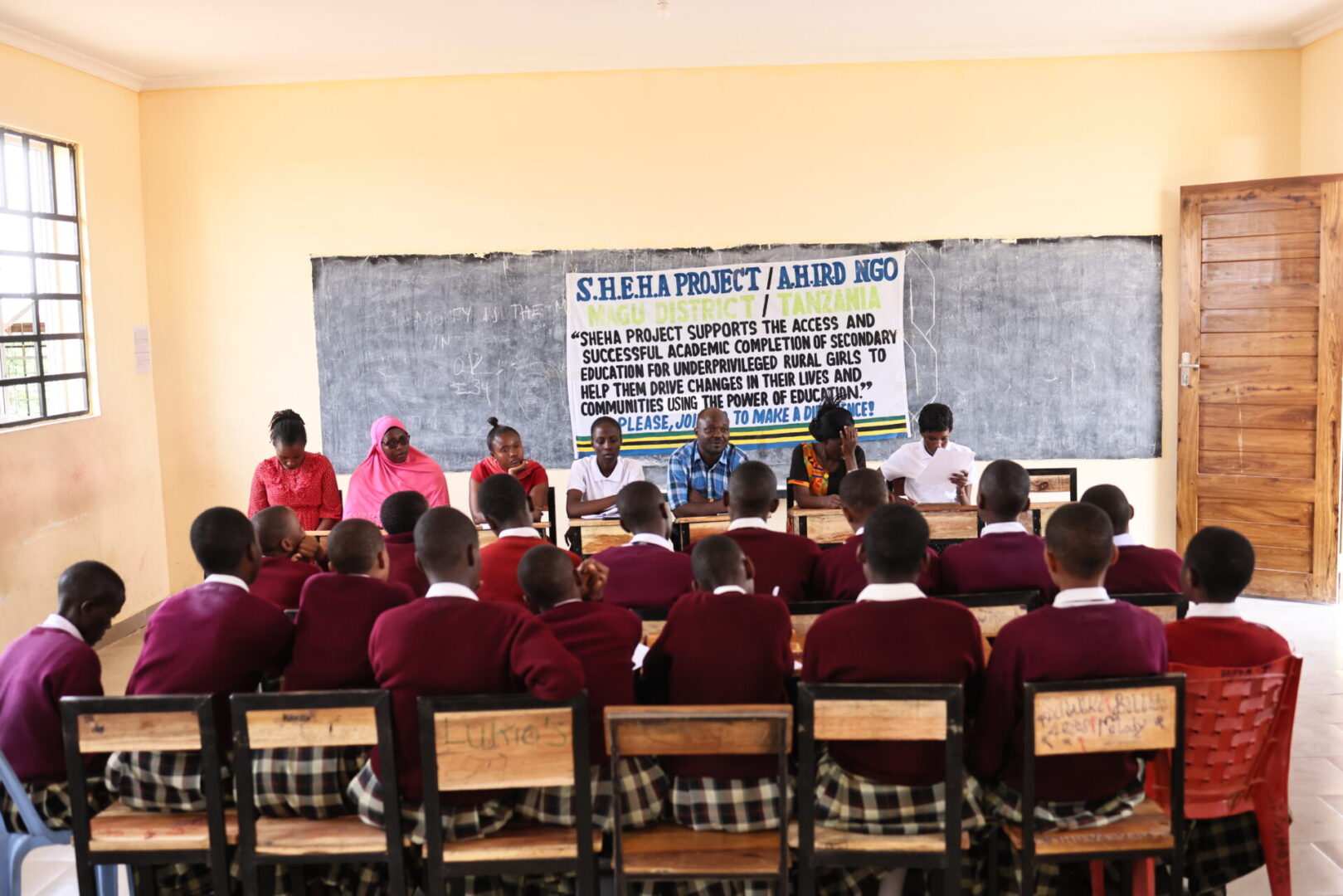Advancing gender equality and community development in Tanzania: Q&A with AHIRD
Written by Olivia Nater | Published: May 19, 2023
[Note: In 2024, AHIRD changed their name to SHEEO – Solidarity for Her Education and Empowerment Organisation. This interview was conducted prior to the name change]
Through our Global Partners program, Population Connection supports a growing number of grassroots organizations around the world working to increase access to education, public health and family planning services. Their efforts make a vital difference in their local communities and represent the “final step” in our shared work to make the world a more just and sustainable place for everyone.
Get to know our wonderful partners in this Q&A series! Founded in April 2020, Awakening Horn for Inclusive Rural Development (AHIRD) promotes gender equality and the participation of women and girls in the socioeconomic development of Magu District in the Mwanza Region of Tanzania. AHIRD Director General William Johnson tells us more.
What prompted you to start your organization?

AHIRD was initiated by four rural young women and one young man, all of them having experienced different violations of their rights while they were growing up. After getting an education, they decided to join hands together to change the situation and fight against social-cultural practices, beliefs, and traditions that hinder the development and future of women, girls, and children, and to promote gender equality and the participation of women and girls in socioeconomic development in rural communities.
What programs or projects are you currently working on?
AHIRD is implementing the following programs:
Girls’ Education, Empowerment, and Gender Equality Promotion Program (GEEGEP)
- Supporting Her Education for Her Autonomy – S.H.E.H.A Project:
Sponsoring access to quality education and successful completion of secondary education for the neediest rural girls; offering education mentorship, menstrual hygiene support, and gender equality advocacy trainings to impoverished rural girls in public secondary schools in Magu district, Mwanza region. - Nurturing Talented Girls’ Leaders of Tomorrow – N.T.G.L.T Project:
Sponsorship of the neediest rural girls with big talents and high academic performance to help them pursue quality secondary education in private secondary schools and reputable colleges to prepare them to become leaders of tomorrow and compete for high-earning jobs to change their lives and communities in Magu district, Mwanza region. - Mwangaza Discovery and Learning Centre – M.D.L.C Project:
Giving out-of-school young women and girls access to vocational skills, sexual and reproductive health and rights (SRHR), and gender equality advocacy to help them defend their rights and dignity and become economically self-reliant and capable of providing for both their needs and those of their children - The Good Parenting Initiative – T.G.P.I Project:
Providing advocacy trainings and mentorship to men and boys to help them be the forefront of challenging masculinity and patriarchal systems in our rural communities and encouraging and preparing men and boys to participate in equitable parenting duties from the family up to the community level.
Childcare, Education, and Support Program (CES)
- Fariji Orphans and Vulnerable Children’s Care and Support Project:
Sponsoring the access to quality primary education for the neediest rural girls and boys with disabilities and those without disabilities, offering education mentorship, providing SRHR and gender equality advocacy trainings to impoverished rural girls and boys in public primary schools.
Sexual and Reproductive Health and Rights and Girls’ Bodily Autonomy Program (SRHR-GBA):
- Her Right to Decide for Her Future – H.D.R.F Project:
H.R.D.F Project is empowering girls and boys in public secondary schools and the community through capacity-building seminars, mentorship workshops, and sensitization meetings to help them advocate, promote, and advance girls’ bodily autonomy and SRHR, with the goal of creating a safe community that values and supports girls’ right to decide over their bodies, lives, and futures.

What do you hope to achieve in the next five years?
We hope to build the capacities and improve the socioeconomic conditions of 5,000 out-of-school, rural young women and teen mothers.
We want to create a community which encourages women and girls to access sexual and reproductive health services as a basic right and supports them to make their own vital decisions over their bodies and futures.
We’d also like to support access to education and mentoring of 2,000 impoverished rural girls so that they may use the power of education to change their lives and communities.
We’re hoping to safeguard the future of 1,000 boys and girls in public primary schools who are at risk of dropping out due to various challenges, and we want to build a movement with advocates across 500 villages who will continue the advocacy on SRHR, family planning, gender equality, and women’s and children’s rights at the grassroots level.
What have been some of the greatest challenges you have faced?
The challenges we face are many, but I am highlighting the most sensitive among them:
- Lack of financial resources to respond to the different needs of our beneficiaries and to run our programs.
- Predominance of social-cultural beliefs in our working areas which lead to misinterpretation of our work, with many people thinking we are promoting a new culture. It takes effort to make them understand we are advocating for inclusive development which leaves no person behind, especially the marginalized groups.
- A limited number of human resources capable of supplementing our programs as most of our activities are volunteer-based.
- COVID-19, which has made many plans to raise funds very difficult.
What are you most proud of?
After struggling a lot to implement our activities over the past three years, and being a small organization, we greatly thank Population Connection for the donation of $10,000 which will help deliver our SRHR activities to 720 boys and girls and 90 key community stakeholders this year.
Also, we have succeeded in receiving another $10,000 unrestricted grant from Girls’ Education Collaborative to help 610 girls in public secondary schools access education and receive mentorship this year.

Anything else you’d like to share with Population Connection members?
We are thrilled to advance our work on reducing inequalities; empowering women, adolescent girls, children, and youth; and sensitizing our rural communities on the effects of population growth and climate change.
We believe partnering with Population Connection is one of the biggest steps in making our plans happen, and we are thankful for this opportunity.
We kindly welcome any other like-minded organization to join hands with us and support the work we are doing to achieve the Sustainable Development Goals in Tanzania and the world.
To learn more about AHIRD, follow them on Facebook and Instagram!
[2024 update: SHEEO now has a website!]

